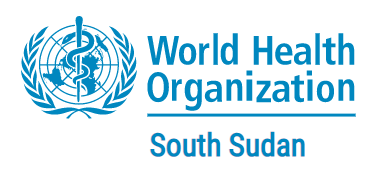Aboja Malual Chol lives in a transit centre for South Sudanese returnees who have fled the conflict in neighbouring Sudan. Living conditions in the centre near Palouch airport in Melut County in northern South Sudan are tough for its 6000 residents who are awaiting to travel to other parts of the country.
Basic services such as water, hygiene and sanitation at the transit centre are inadequate and close living quarters heightens the risks of infectious diseases spreading. Malaria, acute respiratory infections and acute watery diarrhoea are the common causes of ill health among the returnees. Palouch is served by three health facilities, one hospital and two clinics, but they are too far from the transit centre for the returnees to travel. “When they brought us here, before the doctors came, it was very difficult to get medicine. Our children contracted measles,” says Chol. “We have lost children during this time.”
To provide accessible health services to the returnees, Medair, a Swiss humanitarian organization, has established a clinic next to Palouch airport with support and collaboration from World Health Organization (WHO), other UN agencies as well as international and national nongovernmental organizations. “Now we can get medicine,” says Chol. “We thank the health workers. They are trying their best.”
The ward at the clinic can admit patients for 24 hours and if the case is complicated, the patient is transferred to a hospital around 30 kilometres away. This has given the country health department some relief, says Dr Joseph Saka, County Health Director. “We at the county have gotten some help and can now rest,” he says. “The partners bring medicine and treat the returnees in a professional way. It is better than before.”
On average, health workers at the clinic see around 130 clients a week. To date, 20 children have been admitted to the nutrition stabilization centre for mild and severe acute malnutrition. While most children were discharged after treatment, 35% remain as in-patients.
“When my children get sick, I bring them to this hospital for treatment because it is the hospital we access,” says mother-of-two, Nyabol Chol, another returnee who resides in the camp.
Since the crisis started in mid-April 2023, with funding from the United States Agency for International Development (USAID), WHO has distributed over 44 metric tons of medical supplies and equipment to the value of US$ 400 000 that can serve almost 230 000 people. In September, the Organization coordinated an integrated measles and polio vaccination campaign that reached more than 26 000 under-five children respectively in Renk and Melut counties.
The Ministry of Health, with support from WHO, continues to coordinate response of 33 health partners in counties receiving refugees and returnees. WHO has supported the Ministry to strengthen integrated disease surveillance and response reporting and capacity building and has deployed teams to conduct health-related rapid assessments, capacity building and provide medical support in critical areas with high numbers of refugees and returnees.
“WHO has been working with the Ministry of Health, State Ministry and the County Health department. They are our technical support, they advise us and work with us,” says Dr Saka.
More than seven months into the Sudan crisis, there are no signs of the war abating, says Fabien Ndenkazo, WHO Representative in South Sudan. “We expect the returnees and the refugees to continue coming. So, we are really doing all this work and making sure that the health services to returnees are there.”
This response was made possible with funding from the United States Government, through USAID. The agency has contributed US$ 5 million to World Health Organization (WHO) to support an integrated health response for communities affected by crises and acute food insecurity across South Sudan.
Distributed by APO Group on behalf of World Health Organization (WHO) - South Sudan.
Latest Stories
-
Joy FM Prayer Summit for Peace ends in electrifying worship and prayer
5 hours -
The Conscience of Leadership: A call to President Akufo-Addo on Ghana’s environmental devastation
6 hours -
Ghanaian youth unaware of their right to hold politicians accountable – Youth Bridge Foundation
6 hours -
Judge delays Trump sentencing for a third time
7 hours -
2024 WAFCON: Ghana drawn against defending champions South Africa in Group C
7 hours -
Photos from DW-JoyNews street debate on ‘galamsey’
8 hours -
Mimmy Yeboah: Blending heritage with global sophistication, confidence redefined through couture
8 hours -
100 Most Influential People Awards 2024: Brain Hill International School’s Director Mary Anane Awuku honoured
8 hours -
Akufo-Addo commissions 97-km Tema-Mpakadan railway line
9 hours -
Majority requests recall of Parliament
9 hours -
Kanzlsperger and Professor Quartey support WAFA with medical Donation
9 hours -
Gideon Boako donates 10 industrial sewing machines to Yamfo Technical Institute
9 hours -
‘Golden Boy’ Abdul Karim Razak honored at WAFU-B general assembly
9 hours -
Buipewura Jinapor secures Vice Presidential position in National House of Chiefs with record votes
10 hours -
2024 election: I want results to come out like ‘milk and honey’ – Toobu
10 hours

